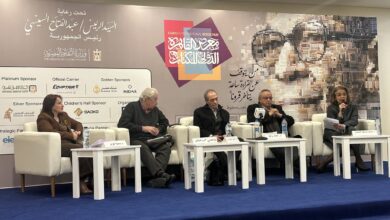Scholar and thinker Nasr Hamed Abu Zaid passed away on Monday morning at 67 in a Cairo hospital. Zaid had returned to Egypt after being diagnosed with an unknown disease, which left him in a coma for the last few days.
Born in 1943 to a modest family, Abu Zaid was unable pursue his high school education due to his family’s economic difficulties. Instead, he earned a technical school diploma in 1960 after which he worked as a technician for the Egyptian Telecommunication Authority until 1972. During this time, he managed to obtain his high school degree and enroll at Cairo University where he received a BA in Arabic Studies and later his MA and PhD in Islamic Studies. In 1972, Abu Zaid was appointed as an assistant professor, marking the beginning of his professional career as a scholar.
Abu Zaid’s scholarship dealt with sensitive issues in Quranic exegesis. He challenged orthodox assumptions about the Quran’s textual authority within the Islamic tradition, and instead advocated forms of interpretation that take into account social and historical context. As a result, his work elicited a hostile response from Islamic conservatives. His books include The Philosophy of Hermeneutics, Critique of Islamic Discourse, Text, Authority, and the Truth, Women in the Discourse of Crisis, Thus Spoke Ibn ‘Arabi, and others.
His progressive ideas led some to accuse him of apostasy. This resulted in his forced departure from Egypt to the Netherlands in 1995, where he worked as a visiting professor of Islamic Studies at the University of Leiden. The controversy surrounding Abu Zaid resumed when he applied for a professorship in the department of literature at Cairo University. Upon reviewing his scholarly work, Abdul Sabbour Shahin, a committee member evaluating Abu Zaid’s application, described him as an infidel. This move triggered a hisba case against Abu Zaid to have his marriage nullified. A court verdict ruled in favor of Abu Zaid’s separation from his wife Ibtihal Younis, professor of French Literature at Cairo University, on grounds that he was no longer a Muslim and therefore could not remain married to a Muslim woman. The case drew a lot of media attention as well as condemnation from human rights defenders who considered the ruling an infringement on freedom of expression.
Abu Zaid held the Ibn Rushd Chair of Humanism and Islam at the University for Humanistics, Utrecht. He also served in various academic and research positions in Egypt and abroad, including as a professor of literature in Cairo University and a visiting professor of foreign languages at the University of Ossaka in Japan. He was awarded several prizes such as the Abdel Aziz el-Ahwany Award for Humanities from Cairo University in 1982, a Medal of Merit from the Tunisian President in 1993 and the Jordanian Writers Union Prize for Human Rights in 1996.




